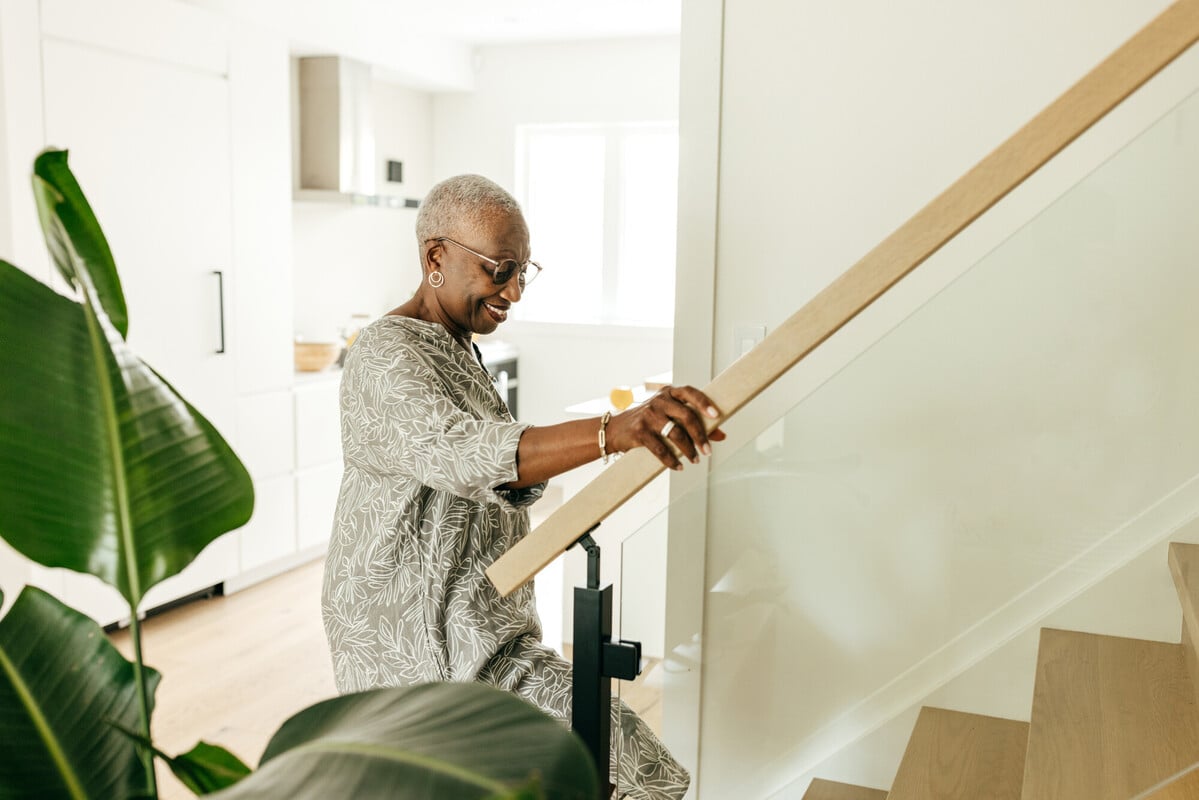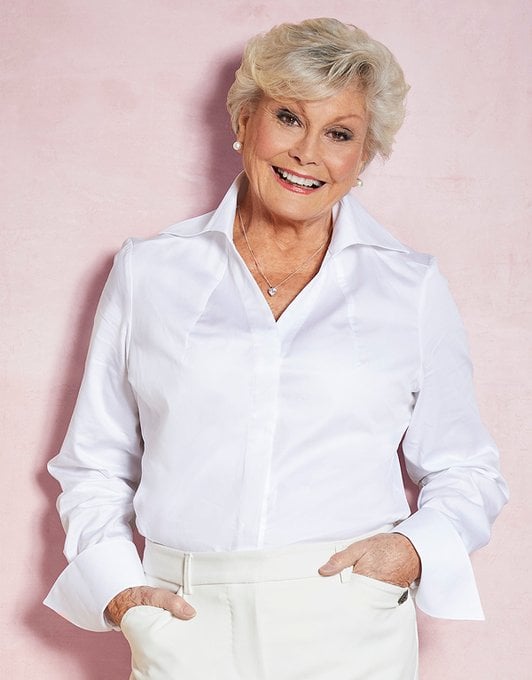Age UK reveals the nation’s most hated and loved exercises, as part of its Act Now, Age Better campaign
Published on 11 August 2025 09:58 AM
- Age UK has uncovered how the nation truly feels about certain exercises – from the most loved and the most hated, to the most avoided at all costs – with Lifestyle GP and Personal Trainer, Dr Hussain Al-Zubaidi, providing the ultimate solutions
- The Charity has also revealed some of the weirdest and most wonderful ways Brits – including broadcasting legend, Angela Rippon – are choosing to get in their daily dosage of movement around the house instead
- This forms part of Age UK’s Act Now, Age Better campaign, which launched earlier this year and encourages everyone to take action and age in the best way possible – starting with staying active
The importance of regularly moving your body and increasing your heart rate to improve your chances of living a long and healthy life is well-known[i]. Yet, some exercises fill many people with nothing but dread.
Following the launch of Age UK’s Act Now, Age Better campaign, which encourages people to make small, proactive changes that could help improve their physical health and the quality of their later years, the Charity has revealed[ii] how the nation truly feels about certain exercises, and it’s official – push-ups are the most hated in the UK, with over one-third of Brits (20 million / 36%) feeling this way.
This is closely followed by:
- Brutal burpees (16 million / 29%)
- Painful planks (13 million / 24%)
- Challenging chin-ups (12 million / 24%)
- Cumbersome crunches (12 million / 22%)
What about the most loved? Well, it seems, this is a nation of squatters and lungers, with one in five people (11 million / 20%) being a sucker for a squat, and over 7.5 million (14%) loving a lunge.
However, Age UK’s polling has also uncovered that many people haven’t ever tried to do some other exercises, with nearly half of all Brits having never done a mountain climber (25 million / 47%), and similar numbers having never attempted a box-jump (25 million / 46%) or a chin-up (24 million / 44%).
In response to this, Lifestyle GP and Personal Trainer, Dr Hussain Al-Zubaidi, says: “It’s easy to feel put off by the word, ‘exercise’. When it’s used, we often picture someone at full blast, hot and sweaty, maybe running or lifting what seems like too much weight in an impressive gym setup. But ‘exercise’ is anything that gets us moving and it all counts. That’s why with patients and clients I use the word ‘movement’! Most importantly, it must be something we enjoy and feel benefit from. There are things we can do in our everyday lives to mimic the classic ‘exercises’ and still reap the benefits.

“For example, the dreaded push-up can be done against a wall or sofa rest during movement breaks after time sat down. Eventually, as your upper body gets stronger, you may be able to do them from the floor. Start adding in some jumping jacks in between push-ups and you are also then tackling similar elements to a burpee. To tackle elements of the plank, you can hold your push up variation for as long as you can whilst tensing your core. Bear crawls around the house are a fantastic way to get in some cardiovascular and strength training at the same time.”
And it seems there are lots of different ways people are getting creative at home to squeeze more activity into their busy lives. In fact, when the general population were asked how they are physically active at home, one in five Brits (11 million / 20%) say they run up and down the stairs, and one in 10 (5.4 million / 10%) use chairs or the sofa for tricep dips or elevated push-ups.
But what about those who really don’t have a minute to spare? Well, it turns out over 8 million people (15%) do exercises such as squats or lunges while waiting for the kettle to boil, and nearly 5.5 million (10%) balance on one leg while brushing their teeth.
So, it seems multi-tasking could be the way forward, with over 3 million (9%) adding that they regularly do a bit of hoover-grooving, others saying they hula hoop while reading (yes, that’s right…) and over 1 million (2%) even taking after Coleen Rooney and squatting in the shower[iii]!
 In fact, star of the TV screen Angela Rippon, agrees – exclusively telling Age UK: “Our bodies are machines that are full of thousands of moving parts. And like any machine, if we don’t keep those parts oiled and moving, they will seize up and let us down. Dancing is one of the best exercises you can do for the health and wellbeing of your mind as well as your body. So just let yourself go and move to the music on the radio. I often get up and dance to the music of the commercials that come up in my favourite TV programme.
In fact, star of the TV screen Angela Rippon, agrees – exclusively telling Age UK: “Our bodies are machines that are full of thousands of moving parts. And like any machine, if we don’t keep those parts oiled and moving, they will seize up and let us down. Dancing is one of the best exercises you can do for the health and wellbeing of your mind as well as your body. So just let yourself go and move to the music on the radio. I often get up and dance to the music of the commercials that come up in my favourite TV programme.
“Just have fun, and whatever exercise you do, think of it as making an investment in your wellbeing pension plan, so that you can have a long, happy and healthy life.”
However, it’s not just parts of the home that are getting involved in people’s healthy lifestyles. Age UK’s findings also suggest that everyday household items are playing their part, with 6 million Brits (11%) saying they have incorporated cans or jars into an at-home exercise routine.
These cupboard staples are closely followed by:
- Water bottles (5.4 million / 10%)
- Pillows or cushions (4.9 million / 9%)
- Towels (3.8 million / 7%)
- And even shopping bags (1.6 million / 3%)) – giving a whole new meaning to the term, ‘bag for life’!
Other items that Brits say they have used in an at-home workout before include oil drums, firewood logs and even milk bottles filled with pebbles – staying green whilst getting lean!
Finally, over 1 million people (2%) have their pets join them in an at-home workout, with one saying they have dance sessions with all four of their dogs, another who holds their pet on their chest as a weight while doing sit-ups and a third whose feline friend loves to climb on their back during yoga!
Age UK’s Act Now, Age Better campaign raises vital awareness of the importance of making small changes to help improve the quality of our later years. For more information, as well as advice and inspiration from Dr Hussain’s informative guide to healthier ageing, please visit: www.ageuk.org.uk/actnow, and do speak to your GP or health practitioner if ever unsure.
-- ENDS --
Notes to Editor
[ii] Age UK calculation based on data (weighted to be representative of the UK population) from Yonder online polling for Age UK, August 2025 (weighted sample of 2075 people aged 18+ in the UK, collected March 2025) and ONS mid-year 2023 population estimates (published 8th October 2024).
Age UK
We work with our national partners, Age Scotland, Age Cymru and Age NI and our local Age UK partners in England (together the Age UK Family). We also work internationally for people in later life as a member of the DEC and with our sister charity Help Age International.
Age UK believes that everyone should have the opportunity to make the most of later life, whatever their circumstances. We provide free information, advice and support to over six million people; commercial products and services to over one million customers; and research and campaign on the issues that matter to people in later life. Our work focuses on five key areas: money matters, health and well-being, home and care, work and training and leisure and lifestyle.
Age UK is a charitable company limited by guarantee and registered in England (registered charity number 1128267 and company number 6825798). Age Concern England and Help the Aged (both registered charities), and their trading and other associated companies merged on the 1st April 2009. Together they have formed the Age UK Group ("we"). Charitable services are offered through Age UK and commercial products are offered by the Charity's trading companies, which donate their net profits to Age UK (the Charity).
For more information
Contact the Age UK Media team on 020 3033 1430 during office hours (Mon-Fri 08:30-17:30) or for out-of-hours media support please email media@ageuk.org.uk.

